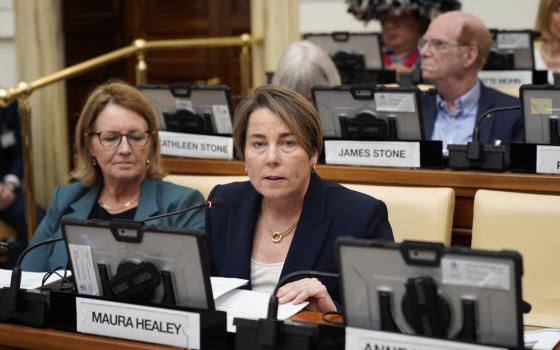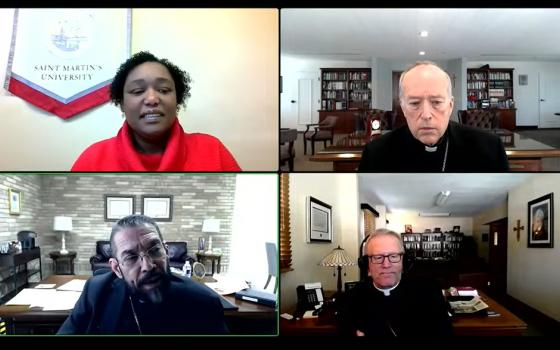
While an alleged Danish draft proposal for a climate compromise caused furor among developing countries, U.N. Secretary-General Ban Ki-moon expressed optimism that a robust agreement to combat climate change would be reached in Copenhagen.
“From all corners of the globe we see unprecedented momentum for a deal,” the U.N. chief told reporters at U.N. headquarters. “I’m encouraged and I’m optimistic.”
For the Copenhagen conference to be a success, Ban said the agreement must include ambitious reductions in carbon emissions by developed countries as well as actions by poorer developing countries to curb emissions. Rich nations must also provide financial support and technological assistance to help developing countries limit their emissions and adapt to the effects of climate change, including floods and drought, he said. “This agreement will have an immediate operational effect as soon as it is agreed,” Ban said.
The secretary-general’s statement indicated that the United Nations wants the provisions in the political deal that will hopefully be reached in Copenhagen to be implemented quickly, without waiting for a legally binding treaty to be negotiated next year.
The U.N. chief said an agreement is likely between developed and developing countries on $10 billion in “short-term, fast-track” financing to help poorer countries until 2012. Financial support beyond that will be discussed at Copenhagen and beyond, he said.
Ban said he will open the high-level segment of the Copenhagen conference on Dec. 15 and expects 105 world leaders to attend the final sessions on Dec. 17-18 to push for an agreement. He singled out President Barack Obama, Chinese Premier Wen Jiabao and Indian Prime Minister Manmohan Singh.
“Never have so many different nations of all size and economic status made so many firm pledges together,” he said. “We must seize this moment, and continue pushing for still higher ambition. This will be crucially important for the future of humanity, and even for the planet Earth.”
In other developments, the United States and the European Union are expected by the Chinese delegation to bring more notable emission reductions targets to the Copenhagen climate talks.
At a press conference Tuesday, the Deputy Head of the Chinese delegation, Su Wei, said neither the United States, the EU, nor Japan had offered sufficient cuts in their greenhouse gas emissions by 2020.
According to Su Wei, the U.S. target on emissions reduction and the U.S. financial support to developing nations are key to the success of the ongoing climate change conference.
Su Wei rejected an EU proposal that the economically advanced developing nations commit to emissions reductions and pay part of the public financing of adaptation and mitigation to climate change in the developing countries.
The targets proposed by China were in line with U.N. Framework Convention on Climate Control (UNFCC), Su Wei noted according to the Nigerian daily This Day, and added: “The EU position cannot be justified. … The [Kyoto] protocol among other UNFCCC agreements stipulate clearly what developed and developing countries should do.”
According to the Kyoto Protocol no developing nations are committed to emission cuts or sharing of funding for mitigation and adaptation in poor parts of the world.
Watch the NCR Ecology channel and the NCR Today group blog for updates on the Copenhagen climate conference.
[Rich Heffern is an NCR staff writer. His email: rheffern@ncronline.org]






